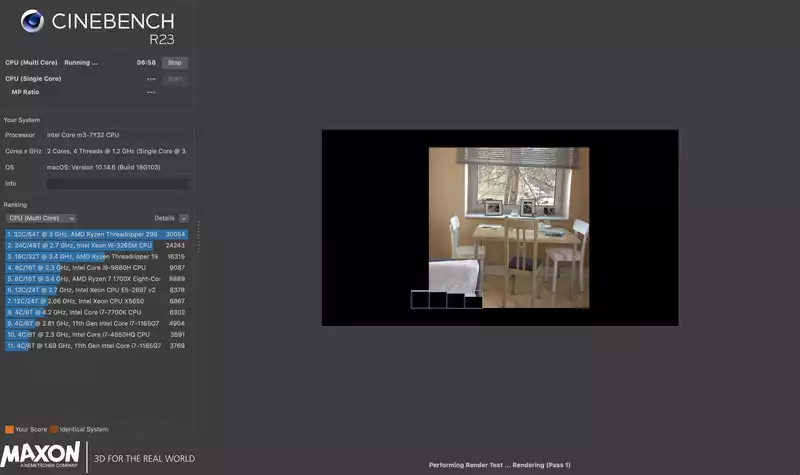One of the most popular cross-platform CPU benchmarks has recently received a slight tweak: Cinebench R23 now imposes a default 10-minute thermal throttling runtime and adds a 30-minute system stability mode. Support has also been added for the new M1 chip, Apple's first ARM processor for Mac systems.
But hardware reviewers the world over need not panic. The longer runtime test mode is optional, not mandatory. Single run sprints are still available in the advanced option. Also, while the revised tests appear to use the same scene as previous R20 releases, the algorithms have been updated and scores are not comparable between releases. This means that it is time to update the CPU benchmark database.
If you're wondering what score you should aim for, we're told early on that 30,000 points on a multi-core run of the hot AMD Ryzen 9 5950X would be the target. Let's get right to the challenge.
Speaking of the M1 chip, Apple claims that this ARM-based processor has the most powerful CPU core in the world. Some analysis by our sister site Anandtech suggests that the M1 is an 8-wide decoding monster machine with a truckload (technical term) of ALUs. Incidentally, AMD's latest CPU, Ryzen, and Intel's Core CPUs are both 4-wide.
While instruction decode width is hardly the only determinant of CPU performance, it is theoretically a significant advantage for Apple's CPU cores. It will therefore be interesting to see how the M1 performs in the single-core pass of Cinebench R23. If the M1 is indeed as good as Apple claims, it will at least change the perception that ARM cannot compete with x86 in raw performance and make it slightly more likely that ARM will eventually assimilate with the PC at the expense of x86.
While you ponder this bombshell, you can get Cinebench R23 here.


Comments